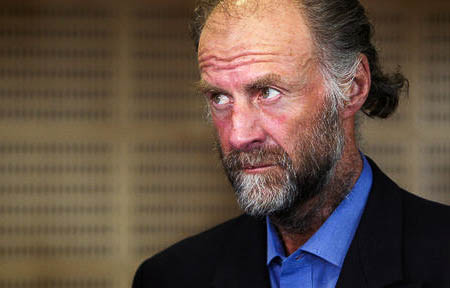
Sir Ranulph Fiennes talks to Mark Lawson on BBC Four this evening
He conquered Everest at the third attempt, scaled the north face of the Eiger despite suffering from vertigo and having had a double heart bypass, and he bears a grudge about being bullied at Eton.
Tonight, the eccentric explorer Sir Ranulph Fiennes, who sawed off his frostbitten fingertips in his garden shed rather than wait for surgery, can be seen on BBC television talking about his extraordinary exploits. The interview, by Mark Lawson, is part of a short season of three programmes with Everest as its theme.
Sir Ranulph Twisleton-Wykeham-Fiennes, Third Baronet of Banbury, may set some aging Old Etonians’ nerves on edge with his revelations. He admits that, at the age of 65, he still contemplates getting his revenge on those whom he sees as being his tormentors and bullies when he was at school. Among those who have recently denied being involved is disgraced former Conservative minister Jonathan Aitken.
The programme will be broadcast at 9.30pm this evening on BBC Four. The corporation’s blurb says: “From being bullied at Eton to the death of his first wife, Fiennes reveals the ingredients behind his incredible determination and exploits.
“At age 65, after a heart attack and several near-death experiences, retirement is far from his mind: ‘I would find it pretty difficult if there wasn’t always an expedition in the planning. It would be the beginning of a pretty quick end I think you know, as with lots of people who retire’.
“He is currently looking for sponsors for his latest expedition, but remains tight-lipped as to what it might be. Like before, he wants it to be a first for England and to beat the Norwegians.”
Before that, the channel will broadcast a documentary on blind athlete Erik Weihenmayer, including his own Everest attempt. The Emmy-nominated film follows his ascent, supported by other climbers. The film will air at 8.30pm on BBC Four.
An hour earlier, there’s a rerun of the documentary following the team of British doctors who set up the world’s highest hospital. First broadcast in 2007, it charts the team’s efforts to cope with cases of acute mountain sickness, cerebral oedema, avalanches, storms and helicopter rescues.